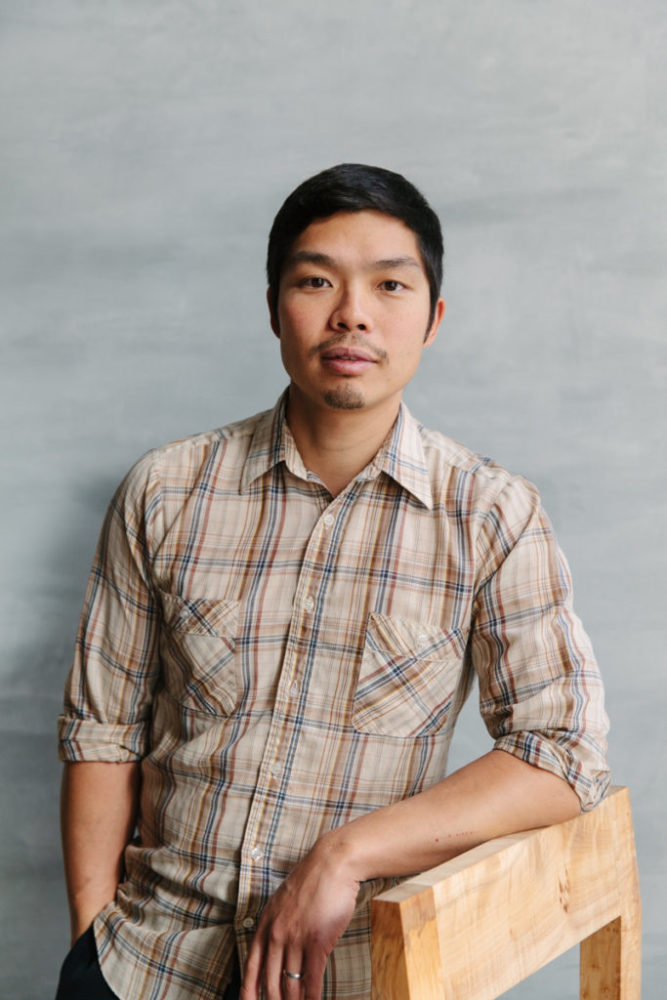Anthony Myint is the Executive Chef and Co-Owner of The Perennial – a revolutionary, totally green restaurant in San Francisco. Anthony is a legend in the San Francisco restaurant scene, and his passion for sustainability within the restaurant industry is clear. He is actively working both in and out of the kitchen to not only end climate change, but REVERSE it with farming methods he hopes everyone will begin to support and implement. Check out our interview with him below to learn more about his mission to pursue sustainability through the restaurant industry and his advice for other chefs to get involved in this important issue.
-
What inspired you to take your first steps into the culinary industry?
Originally I was drawn to the kitchen by the opportunity for food and restaurants to give back to the community and the possibility of doing things better and/or differently than the norm. I grew up in Northern Virginia where restaurants were either fancy (white table cloth steakhouse/Italian) or cheap ethnic food, or fast food and I was sure there was a lot of potential for new things.
-
Your career has been marked by activism and a pursuit of sustainability, what compelled you to make this a part of your life’s work?
This has really been the focus of the last 5 years. My wife and I had a daughter and decided that we wanted to use our platform in the restaurant industry to try to improve the food system and address climate change. We have learned so much in that time–it’s basically like in The Matrix when Keanu/Neo wakes up in the nutrient extraction pod and then spends the rest of the movie downloading kung fu and trying to blow up the system. What’s compelling is that food/soil can REVERSE climate change and chefs/restaurants can lead a delicious revolution.
-
Your current restaurant, The Perennial, was literally built “green” from the ground up with an LEED certification. Now, how does climate consciousness implement the restaurant’s daily practices? Are there any areas that you think can still be improved?
As we learned, the energy efficiency stuff is the very least of it. We bake bread daily with Kernza, a perennial grain. This is not fad wheat alternative; it represents a pivot in civilization from agriculture that is basically extraction for maximum money/yield/calories to farming with nature – Renewable Food if you will. Another example is carbon ranched beef. The 1/10th of the ranch that began this process 5 years ago has already drawn down as much atmospheric GHG as not-burning over 1 million gallons of gas. In a nutshell, food/soil can have the same environmental benefits as planting trees. A single acre of soil is very immense and soil biology can represent more CO2 draw down than trees.
-
What advice / starting pointers would you give to chefs looking to make a positive change in implementing sustainability into their food or restaurants?
It’s all about healthy soil. Get in touch with me and I’ll tell you everything. You can join some of the best chefs in the world by going carbon neutral at zerofoodprint.org. We’re working very urgently to use the buying power of this group to create a circular economy where restaurants can support the kinds of farming that reverses climate change – even if you are not sourcing from those farms. I think this is the crucial part because realistically not everyone’s business model will allow for carbon ranched beef or regeneratively grown crops. But if they can muster sending a few cents per diner towards those projects, we can increase the supply chain.

-
Your culinary career has followed a very different path from what might be considered normal in the industry. How do you find a balance for your many projects and diverse pursuits?
I have no balance whatsoever. I work before and after work on this. I do it because it’s too important to slow down. Tell me this: How many chefs are working on climate change? If you don’t count me, can you name a single one? Globally it’s a $2.4 Trillion dollar industry and it’s bigger than retail or farming, economically. But if 10 celebrity chefs started doing something, the whole industry could shift.
-
What are you working on right now that you would like more people to know about?
It’s all very new science, like this peer-reviewed study in August using NASA modeling of new farming practices to show the significant potential of farming to reverse climate change.
The best way to get involved is to go carbon neutral. There’s not space here to dive deep, but amazing chefs like Rene Redzepi, Corey Lee, Gabriela Camara, Thomas McNaughton, Stuart Brioza + Nicole Krasinski have gone carbon neutral and there’s a lot of great chefs/restaurants in-process. Pretty soon the project will provide a private sector complement to some California state programs such as the Healthy Soils Initiative. Overall the work at ZeroFoodprint.org is like the real world implementation of the optimistic environmental philosophy of the scientists at Project Drawdown.
Photography courtesy of Anthony Myint.


